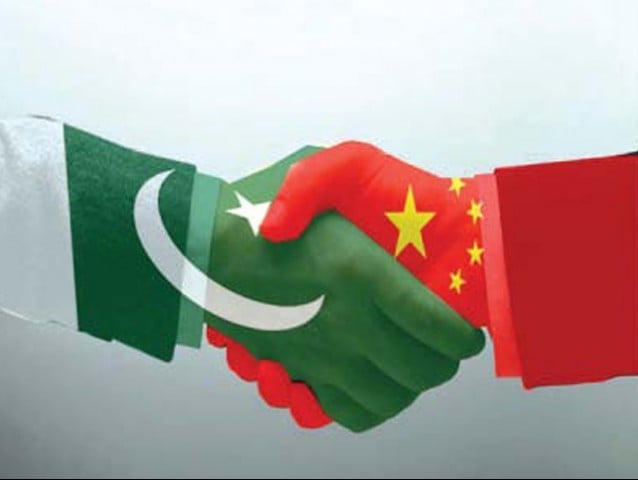
In a strategic move to foster stronger educational ties and enhance youth employability, Pakistan has entered into a promising collaboration with China. Secretary of Education, Mohyuddin Ahmad Wani, recently welcomed a high-powered Chinese delegation led by Wang Dang, Chairman of CIIC Technology Group Co. Ltd., at the Ministry of Federal Education and Professional Training. The landmark meeting signals a renewed commitment to educational reform and skill development in Pakistan.

Key Meeting Highlights
| Participants | Designations/Organizations |
|---|---|
| Mohyuddin Ahmad Wani | Secretary, Ministry of Federal Education and Professional Training |
| Wang Dang | Chairman, CIIC Technology Group Co. Ltd. |
| CIIC Delegation Member | General Manager, CIIC International Education Technology Co. Ltd. |
| Mr. Sohail Akhtar | Joint Secretary Education |
| Mr. Muhammad Aamir Jan | Executive Director, NAVTTC |
The high-level interaction focused on building sustainable educational partnerships and addressing Pakistan’s growing educational challenges with China’s technical expertise.
Addressing Pakistan’s Educational Emergency
Educational Challenges Faced by Pakistan
-
Climate change effects on infrastructure and schooling
-
Low access to quality education in remote areas
-
Teacher shortages and lack of adequate training
-
Child malnutrition and stunting
Government’s Response
According to Secretary Wani, Pakistan has declared an "Educational Emergency", mobilizing ministries and private sector partners. The Ministry is committed to a 360-degree approach guided by a task force formed under the Prime Minister’s leadership.
Key Educational Initiatives:
-
Infrastructure Development: Climate-resilient school buildings
-
Pink Bus Program: Special transport for female students in Gilgit-Baltistan and Islamabad
-
School Meals Program: Combat child stunting and promote attendance
-
Teacher Training Programs: Capacity building for better classroom outcomes
CIIC’s Role and Commitments
About CIIC Group
| Company | Details |
|---|---|
| Name | China International Intellectech Group Co., Ltd. (CIIC) |
| Established | 1987 |
| Headquarters | Beijing, China |
| Operational Reach | Over 300 cities across China |
| Services Offered | Human resources, intellectual property, and tech-based educational services |
Wang Dang’s Statement:
“Our goal is to equip Pakistani youth with technical skills, supporting both Pakistan’s economic development and the growing demands of CPEC projects.”
CIIC is keen to establish technical training centres across Pakistan, designed to serve both national development needs and the workforce requirements of Chinese enterprises operating under the China-Pakistan Economic Corridor (CPEC).
Strategic Outcomes of the Meeting
Agreed Actions:
-
Bilateral Ministerial Meeting: To be held between the Education Ministers of Pakistan and China.
-
Expedited Planning: For the establishment of CIIC-led training centres.
-
Joint Educational Frameworks: Collaborative programs in curriculum development and technology transfer.
Impact on Pakistan’s Workforce and Economy
This educational collaboration is expected to:
-
Enhance Youth Employability: By providing modern vocational skills.
-
Support CPEC Projects: With a trained, local workforce.
-
Promote Gender Inclusion: Through dedicated initiatives like the Pink Bus Program.
-
Foster Sustainable Growth: By aligning education with economic development strategies.
Vision for the Future
Both parties reaffirmed their commitment to long-term educational cooperation. This partnership will not only address Pakistan’s immediate challenges but will also position it as a regional leader in vocational and technical education.
Summary of Pakistan-China Educational Collaboration:
| Area of Collaboration | Expected Outcome |
|---|---|
| Technical Training Centres | Skilled workforce, job creation |
| Ministerial Coordination | Strategic planning and policy alignment |
| Infrastructure Development | Resilient educational systems |
| Public-Private Partnership | Stronger implementation and monitoring |
| CPEC Workforce Integration | Seamless employment for trained youth in Chinese enterprises in Pakistan |
This timely and visionary initiative between Pakistan’s Ministry of Education and CIIC China reflects a joint ambition to transform education into a key driver of development. With the establishment of technical training centres and other reforms underway, Pakistan is poised to make education more inclusive, accessible, and relevant for the challenges of the 21st century.












